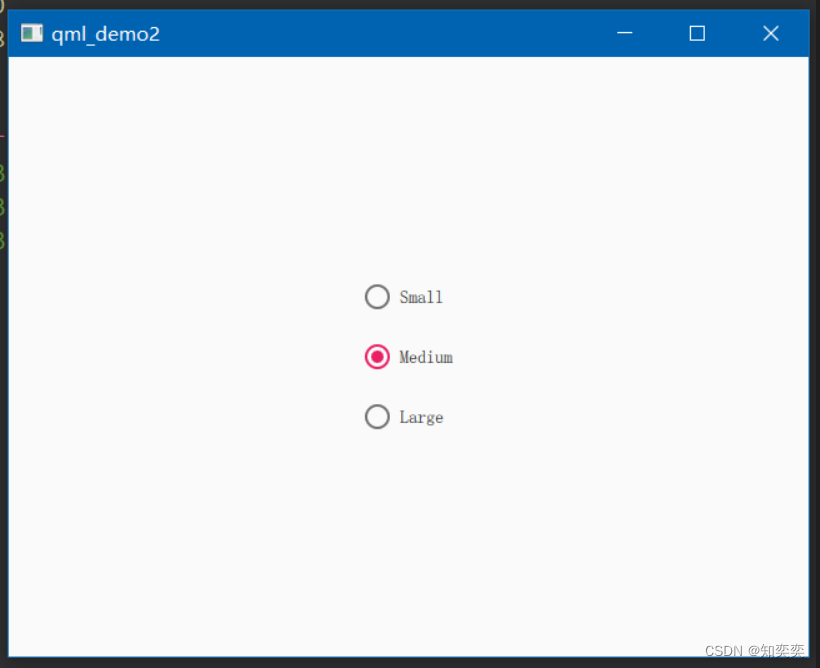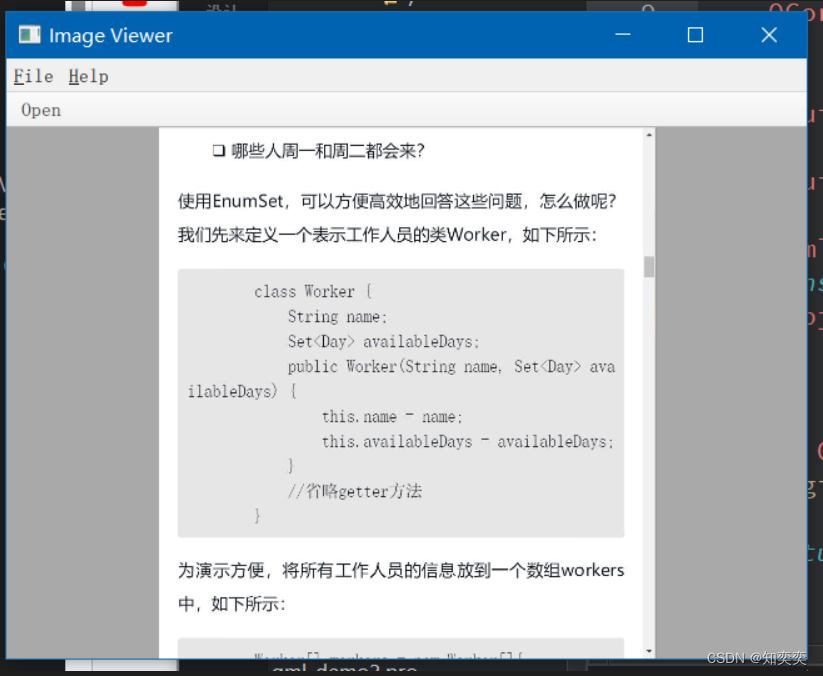安徽网站建设公司排名网站服务器多少钱一年
目录
- QuickControl2
- 简介
- 风格设置
- control 配置文件
- 图像浏览器案例
- component 组件报错问题
- StackView
- SwipeView
QuickControl2
简介
quickcontrol 用于快速构建风格化的用户界面
它包括了以下几个预制的组件风格
- Default QT 默认风格
- Universal windows 桌面风格
- Material 谷歌推出的 MaterialDesign 风格
- Fusion
- Imagine
风格设置
官方文档对于风格设置提供了两种方式,此处就采用其中的一种,即使用 QQuickStyle
首先在 pro 文件内,添加对应库
QT += quick quickcontrols2
之后来到 main.cpp 设置我们的整体风格
注意,风格必须在 qml 初始化前设置,且一旦设置则全局使用此风格,不可变换!
#include <QGuiApplication>
#include <QQmlApplicationEngine>// 第一步,导入头文件
#include <QQuickStyle>int main(int argc, char *argv[])
{
#if QT_VERSION < QT_VERSION_CHECK(6, 0, 0)QCoreApplication::setAttribute(Qt::AA_EnableHighDpiScaling);
#endifQGuiApplication app(argc, argv);// 第二步,应用风格// 这里使用了google的material风格QQuickStyle::setStyle("Material");...return app.exec();
}
最后回到我们的 qml 主文件,写一段简单的代码测试一下风格
main.qml 代码清单
import QtQuick 2.12
import QtQuick.Controls 2.12// 默认此处根组件应该是Window,我这里用了ApplicationWindow,效果是一致的
ApplicationWindow {visible: truewidth: 640height: 480// 创建一个列表,包含三个单选按钮Column {anchors.centerIn: parentRadioButton { text: qsTr("Small") }RadioButton { text: qsTr("Medium"); checked: true }RadioButton { text: qsTr("Large") }}
}
如下图展示效果,风格成功应用上去了!

control 配置文件
对于普通项目,为便于开发,我们可以额外新建一个配置文件用于管理当前应用的整体风格
在与 main.qml 同级的目录下新建配置文件 qtquickcontrols2.conf (必须是这个名字!)
填入下方配置
; This file can be edited to change the style of the application
; Read "Qt Quick Controls 2 Configuration File" for details:
; http://doc.qt.io/qt-5/qtquickcontrols2-configuration.html; 配置全局风格为MaterialDesign2
[Controls]
Style=Material
图像浏览器案例
推荐风格选择 Fusion
功能很简单,添加菜单栏和工具栏,选择文件并打开;
主要关注点为 FileDialog 的使用
下面是 main.qml 的完整代码
import QtQuick 2.12
import QtQuick.Controls 2.12
import QtQuick.Dialogs 1.2ApplicationWindow {visible: truewidth: 640height: 480title: qsTr("Image Viewer")// 顶部菜单栏menuBar: MenuBar {// 主菜单项Menu {title: qsTr("&File")// 子菜单项MenuItem {text: qsTr("&Open...")icon.name: "document-open"// 点击后触发对应FileDialogonTriggered: fileOpenDialog.open()}}Menu {title: qsTr("&Help")MenuItem {text: qsTr("&About...")onTriggered: aboutDialog.open()}}}// 顶部工具栏header: ToolBar {// 流式布局Flow {anchors.fill: parent// 工具项ToolButton {text: qsTr("Open")icon.name: "document-open"onClicked: fileOpenDialog.open()}}}// 设置背景颜色background: Rectangle {color: "darkGray"}// 图片显示组件Image {id: imageanchors.fill: parentfillMode: Image.PreserveAspectFitasynchronous: true}// 打开文件对话框FileDialog {id: fileOpenDialogtitle: "Select an image file"folder: shortcuts.documentsnameFilters: ["Image files (*.png *.jpeg *.jpg)",]onAccepted: {image.source = fileOpenDialog.fileUrl}}// About对话框Dialog {id: aboutDialogtitle: qsTr("About")Label {anchors.fill: parenttext: qsTr("QML Image Viewer\nA part of the QmlBook\nhttp://qmlbook.org")horizontalAlignment: Text.AlignHCenter}standardButtons: StandardButton.Ok}
}
运行结果

component 组件报错问题
当我们在需要使用 Component 定义一个组件时,通常会发现编辑器报错 Unknown component (M300)
解决方法很简单,点击编辑器菜单栏的 工具->QML/JS->重置代码模型 即可解决

StackView
StackView 可以实现多页面的堆栈管理,类似于 android 中的 view
下方代码实现效果:点击界面实现 push 和 pop 效果,并附带自定义界面切换效果
由于要使用动画过渡属性,故导入头文件时,control 需要使用 1.4 版本的 import QtQuick.Controls 1.4
简要介绍下方代码展示的主要内容及其对应含义:
initialItem设置初始展示页面/组件delegate设置当新页面 push 或者被 pop 后的过渡动画Component组件,根据 id 被 stackview 使用
代码清单 main.qml
import QtQuick 2.12// 请使用1.4版本
import QtQuick.Controls 1.4ApplicationWindow {visible: truewidth: 640height: 480title: qsTr("Image Viewer")StackView {id:svanchors.fill: parentinitialItem: mainView // 设置初始页面// 设置页面push或pop后过渡动画// 动画设置中有两个可用变量:exitItem正在退出的元素;enterItem正在加入的元素;delegate: StackViewDelegate {// 当动画结束后,执行的对应方法function transitionFinished(properties){properties.exitItem.x = 0properties.exitItem.rotation = 0}// push插入动画// 动画内容是:让当前组件从界面左侧移动走,然后自身再旋转360度pushTransition: StackViewTransition {// 顺序动画SequentialAnimation {ScriptAction {script: enterItem.rotation = 90}PropertyAnimation {target: enterItemproperty: "x"from: enterItem.widthto: 0}PropertyAnimation {target: enterItemproperty: "rotation"from: 90to: 0}}PropertyAnimation {target: exitItemproperty: "x"from: 0to: -exitItem.width}}// pop弹出动画// 动画内容:组件颜色渐变(非常实用,建议copy)popTransition: StackViewTransition {PropertyAnimation {target: enterItemproperty: "opacity"from: 0to: 1}PropertyAnimation {target: exitItemproperty: "opacity"from: 1to: 0}}}// 在stackview内部定义组件Component{id: mainViewMouseArea{Rectangle{id:mvRectwidth: 100; height: 100anchors.centerIn: parentcolor: "orange"}onClicked: sv.push(sideView) // 点击后插入新页面}}// 定义的另一个组件Component{id: sideViewMouseArea{Rectangle{id:svRectwidth: 100; height: 100anchors.centerIn: parentcolor: "deepskyblue"}onClicked: sv.pop() // 点击后弹出当前页面}}}
}
外部界面文件调用案例
注意,这里全部需要使用 import QtQuick.Controls 2.2
当然了,我们不可能把所有组件或者页面都以 Component 的形式写到 stackview 里面去,我们需要对其进行充分的解构
首先来看看主文件 main.qml
import QtQuick 2.12
import QtQuick.Controls 2.2ApplicationWindow {visible: truewidth: 640height: 480title: qsTr("Image Viewer")StackView {id:svanchors.fill: parent// 加载外部组件HomeViewinitialItem: HomeView{}}
}
主页面代码清单 HomeView.qml
import QtQuick 2.0
import QtQuick.Controls 2.2// Page表示页面
Page{title: qsTr("Home")MouseArea{anchors.fill: parentLabel {text: qsTr("Home Screen")}// sv就是我们在主页面定义的stackview组件// push内部直接写同级目录下的qml文件,就可以插入了onClicked: sv.push("SideView.qml")}
}
副页面代码清单 SideView.qml
import QtQuick 2.0
import QtQuick.Controls 2.2Page{title: qsTr("Home")Button{id:btnwidth: 120; height: 40anchors.centerIn: parenttext: qsTr("点击返回home")onClicked: sv.pop() // 弹出}
}
这里就实现了调用外部 qml 文件来执行 push 和 pop 操作
SwipeView
类似前端中的轮播图
同样的,需要注意导入 import QtQuick.Controls 2.2
import QtQuick 2.9
import QtQuick.Controls 2.2ApplicationWindow {// ...visible: truewidth: 640height: 480title: qsTr("Side-by-side")// 滑动视图SwipeView {id: swipeViewanchors.fill: parent// 这是三个外部Page组件,用于组成视图Current {}UserStats {}TotalStats {}// ...}// 导航指示点PageIndicator {anchors.bottom: parent.bottomanchors.horizontalCenter: parent.horizontalCentercurrentIndex: swipeView.currentIndexcount: swipeView.count}// ...}
我们随机找一个 swipeview 用到的外部组件,该组件很简单,根部是 Page,点击按钮返回第一个轮播项
代码清单 TotalStats.qml
import QtQuick 2.9
import QtQuick.Controls 2.2// 和stackview一样,这里的外部组件依然需要使用page定义
Page {header: Label {text: qsTr("Community Stats")font.pixelSize: Qt.application.font.pixelSize * 2padding: 10}Column {anchors.centerIn: parentspacing: 10Label {anchors.horizontalCenter: parent.horizontalCentertext: qsTr("Community statistics")}Button {anchors.horizontalCenter: parent.horizontalCentertext: qsTr("Back")onClicked: swipeView.setCurrentIndex(0); // 点按钮回到第一个轮播项}}
}
由于内容比较简单,其余的两个轮播项就不一一展示代码了,反正也就是对应的使用 Page 组件即可!
